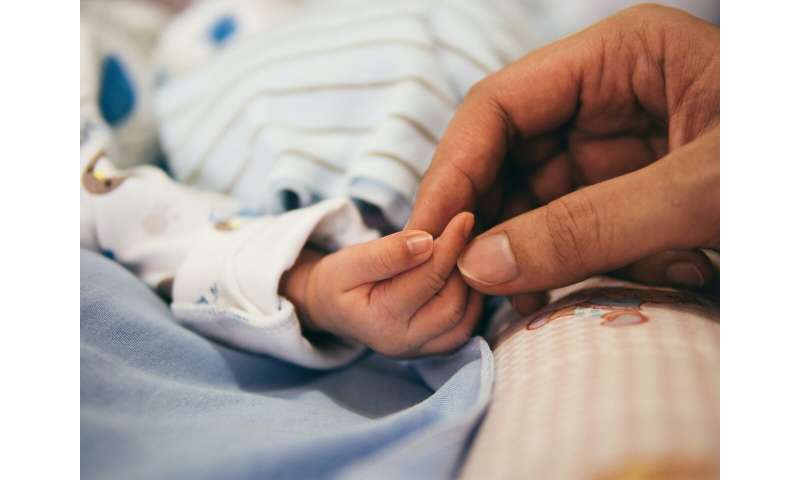Treatment plan helps keep young cancer patients home

An Australian program that avoids hospital admission for some young cancer patients with a fever is helping to ease pressure on the UK health system during the COVID-19 crisis. The AUS-rule system, now published in E Clinical Med, guides doctors when deciding whether patients can be treated and supported at home.
Led by experts at Murdoch Children’s Research Institute (MCRI) and the Peter MacCallum Cancer Centre, AUS-rule has already been successfully deployed in several Australian hospitals including the Royal Children’s Hospital. It has also been fast-tracked in some UK hospitals.
Children undergoing cancer treatment face an increased risk of febrile neutropenia (FN), a fever with low numbers of a white blood cell important in fighting infections. Febrile neutropenia may require hospital admission for antibiotics, but an international collaboration is working to manage suitable cases at home.
Pediatric cancer researcher Dr. Gabrielle Haeusler, from MCRI and the Peter MacCallum Cancer Centre, recalibrated a febrile neutropenia decision rule, with input by UK researchers.
AUS-rule was formulated by the Australian and UK Predicting Infectious Complications In Children With Cancer Projects (PICNICCs) and the Swiss Pediatric Oncology Group (SPOG). The University of York PICNICC project was led by Dr. Bob Phillips. The AUS-rule (Australia-UK-Switzerland) name reflects this international collaboration.
The AUS-rule helps doctors decide which children with febrile neutropenia are suitable for home management using antibiotics and temperature monitoring. It considers platelet and white cell counts and chemotherapy intensity.
Dr. Haeusler said, “Over half of these patients do not have a severe infection and can be treated at home with antibiotics and the appropriate supports. This reduces their time spent in hospital by 3-4 days and allows kids to recover in the comfort of their own home. We are currently in the process of scaling up the program across Australia so more children with cancer can benefit from this research.”
Dr. Phillips is leading the UK push to roll out the Low-risk Febrile Neutropenia Program using the AUS-rule, endorsed by the Children’s Cancer and Leukaemia Group (CCLG). Those using it can access vital AUS-rule guidelines, patient information, checklists and tip sheets online.
Dr. Phillips said it was early days, but the simple and robust system was already popular with families who had trialed it in Leeds, London, and Liverpool.
Of the 32 children who have presented with febrile neutropenia at Leeds Teaching Hospital so far, nine have gone home with support and an antibiotic treatment plan within a day, compared to a usual minimum hospital stay of three days. Families have embraced the development.
“They absolutely want to get out of hospital quicker,” Dr. Phillips said. “It means that we don’t do unnecessary tests on kids and just annoy them, and they actually do better at home.”
Source: Read Full Article
